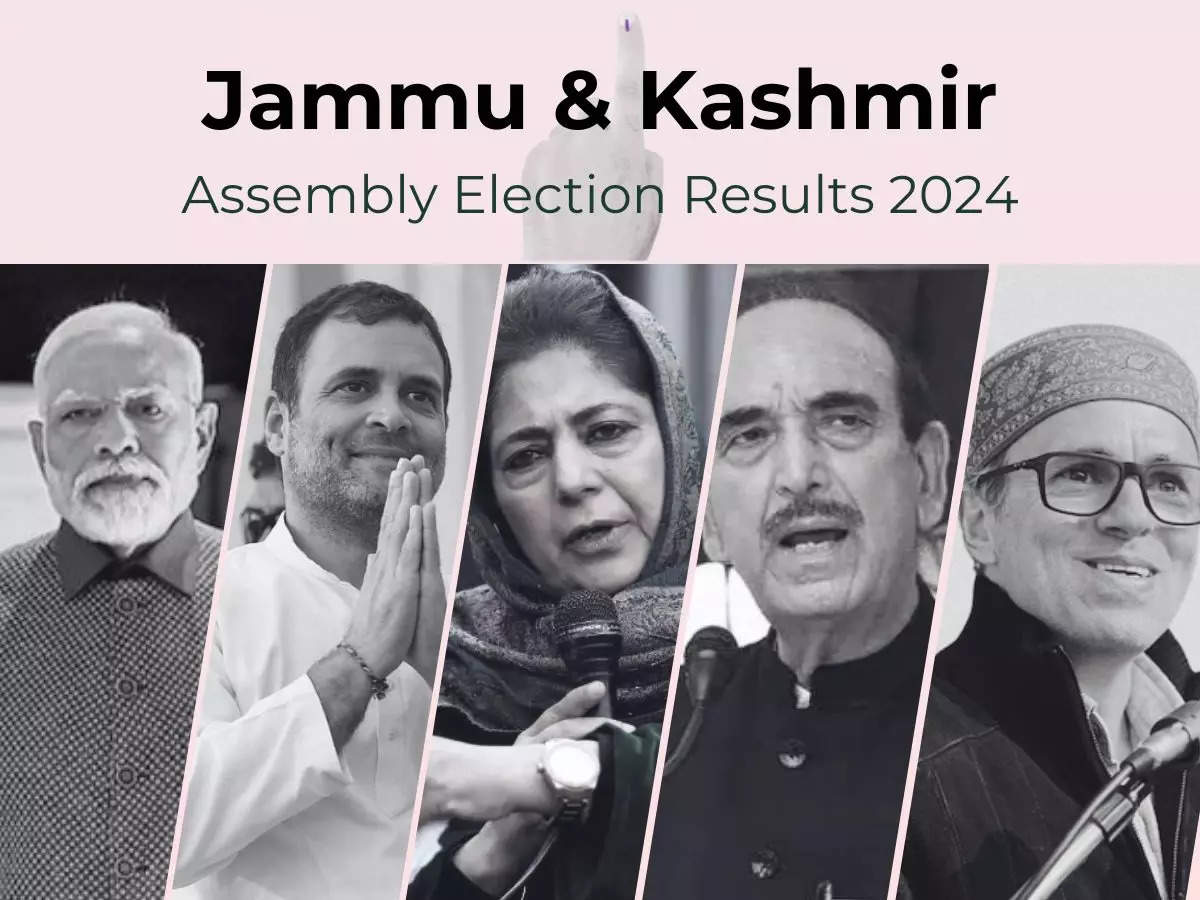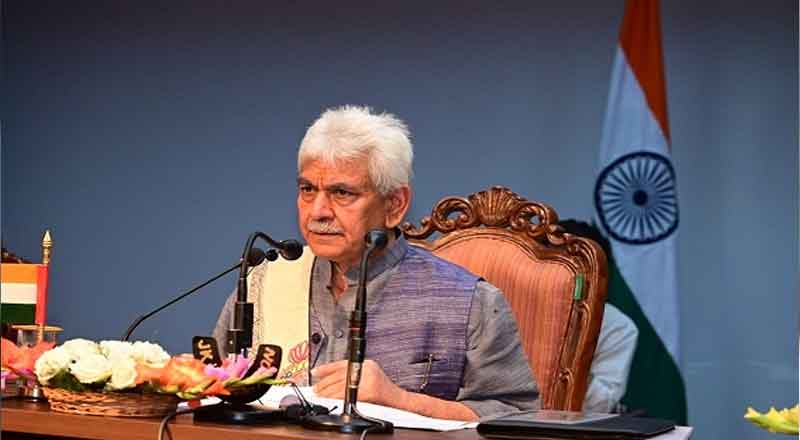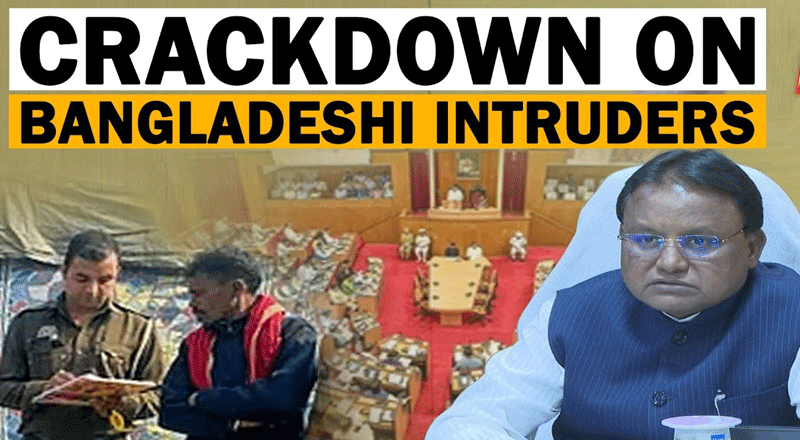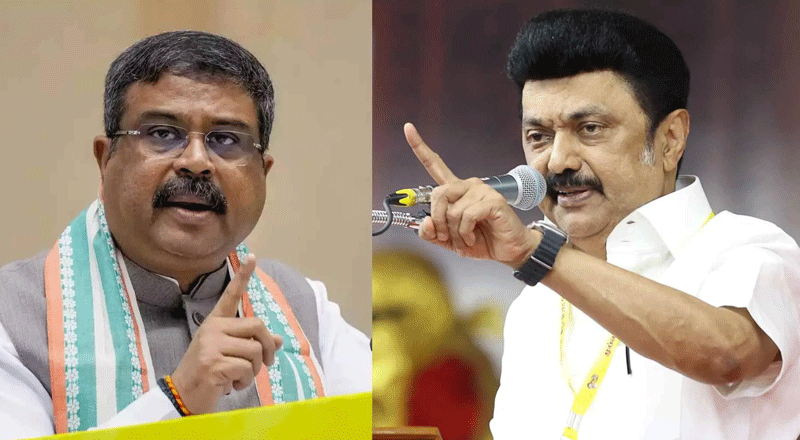The Jammu and Kashmir Assembly elections have garnered nationwide attention as they mark the first polls in the region since the abrogation of Article 370 in 2019. With 90 seats at stake, political parties are scrambling to secure the magic number of 46 needed for a majority. However, an unforeseen factor has added an extra layer of complexity to this already tight race—the Lieutenant Governor’s (LG) ability to nominate five Members of Legislative Assembly (MLAs). The debate surrounding these nominations has raised concerns, with many questioning how these five individuals could alter the balance of power in the new Assembly.

The Nominated MLAs: A Game-Changing Provision
The controversy surrounding the nomination of five MLAs stems from the Jammu and Kashmir Reorganisation Act, 2019, which allowed the LG to nominate two members to the Assembly to ensure adequate representation for women. In 2023, this provision was expanded to include three more nominations—two members from the Kashmiri migrant community, one of whom must be a woman, and one displaced person from Pakistan-occupied Jammu and Kashmir (PoJK). This amendment gives the LG, currently Manoj Sinha, the authority to select these five individuals, reportedly based on the advice of the Union Home Ministry.
The real question lies in whether these nominated members will have voting rights, especially in the formation of the government. If they do, the addition of five MLAs would significantly alter the Assembly’s dynamics, potentially swinging the results in favor of a particular party—most notably the Bharatiya Janata Party (BJP), which could benefit from these nominations.
A Shift in the Majority Mark
The crux of the issue is how the inclusion of these nominated MLAs could shift the majority mark in the Assembly. With 90 seats currently in contention, a party or coalition needs 46 seats to form a government. However, if these five MLAs are given voting rights, the total number of members in the Assembly would increase to 95, raising the majority requirement to 48.
This shift means that parties like the Congress-National Conference (NC) alliance, which might have been targeting 46 seats for a majority, would now need 48. On the other hand, the BJP, with potential support from the five nominated MLAs, would only need 43 elected seats to form the government. This change in the threshold could be critical in what many believe will be a closely contested election, especially if the results lead to a hung Assembly.
Impact on a Hung Assembly
Many exit polls have predicted that the Jammu and Kashmir Assembly election could result in a hung Assembly, where no party secures a clear majority. In such a scenario, the five nominated MLAs could become kingmakers. If they are granted voting rights and align with the BJP, they could tip the balance in its favor, allowing the party to form the government even if it falls short of the 46-seat mark.
This possibility has alarmed opposition parties, including Congress, the National Conference, and the People’s Democratic Party (PDP). They have expressed strong objections to the timing and potential influence of these nominations, arguing that it could undermine the democratic process.
Opposition’s Outcry: “A Fraud on Democracy”
The opposition’s concerns are centered around the perceived manipulation of the election process through these nominations. Congress spokesperson Ravinder Sharma described the potential nomination of five MLAs before government formation as “a fraud on democracy,” claiming that the mandate should rest solely with the elected representatives. National Conference leaders, including Farooq Abdullah, have also voiced their apprehension, with Abdullah even considering approaching the Supreme Court to challenge the move. He emphasized that allowing the LG to nominate MLAs before the government is formed could set a dangerous precedent, effectively bypassing the will of the people.
BJP’s Stand: “By the Book”
The BJP, however, sees no issue with the nominations, arguing that they are entirely in line with the Jammu and Kashmir Reorganisation Act. Jammu-Kashmir BJP chief Ravinder Raina stated that the nominations were a legal provision, and the party expects to emerge as the single largest party with or without their support.
In fact, BJP leaders have already begun hinting at who these five nominees might be. Sofi Yousuf, BJP vice president for the Union Territory, claimed that the names have already been finalized, mentioning individuals like BJP state secretary Ashok Koul and former women’s wing president Rajni Sethi as potential nominees. According to him, these nominees would unequivocally back the BJP, further boosting its chances of forming a government.
Legal Ambiguities and Expert Opinions
At the heart of this debate is a legal gray area: can these MLAs be nominated before the formation of a government, and will they have voting rights? Legal experts are divided on the issue. Supreme Court advocate Ashwani Kumar Dubey has called the matter “unclear,” while retired Delhi High Court judge Justice SN Dhingra advised waiting for the election results before jumping to conclusions.
Senior advocate Gopal Sankaranarayanan has warned against comparing Jammu and Kashmir’s situation to that of Puducherry, where nominated MLAs do have voting rights. He argued that the political complexities of the Union Territory demand a more cautious approach.
A Battle for Democracy or Political Strategy?
As Jammu and Kashmir awaits the final election results, the issue of nominated MLAs looms large over the region’s political future. For the opposition, these nominations represent an undemocratic intrusion into the election process, potentially tilting the scales in favor of the BJP. For the BJP, however, they are a legitimate tool in government formation, enshrined in law.
Whether or not these MLAs are granted voting rights could determine the outcome of this historic election, making the battle for power in Jammu and Kashmir as much about legal interpretations as it is about the will of the people.
(With inputs from agencies)





